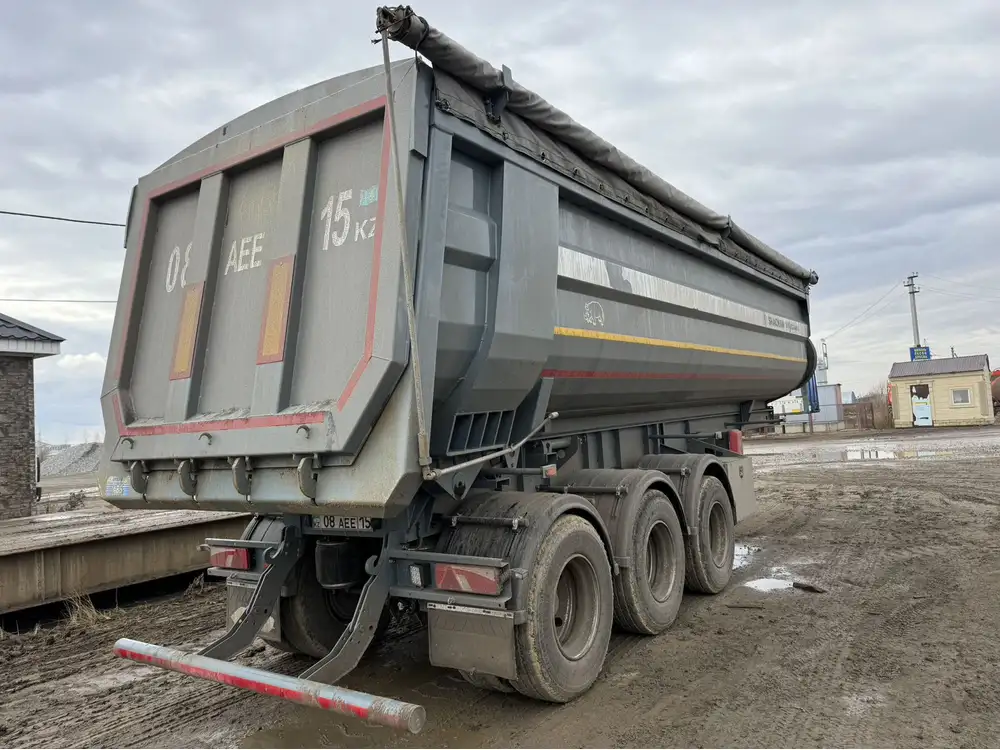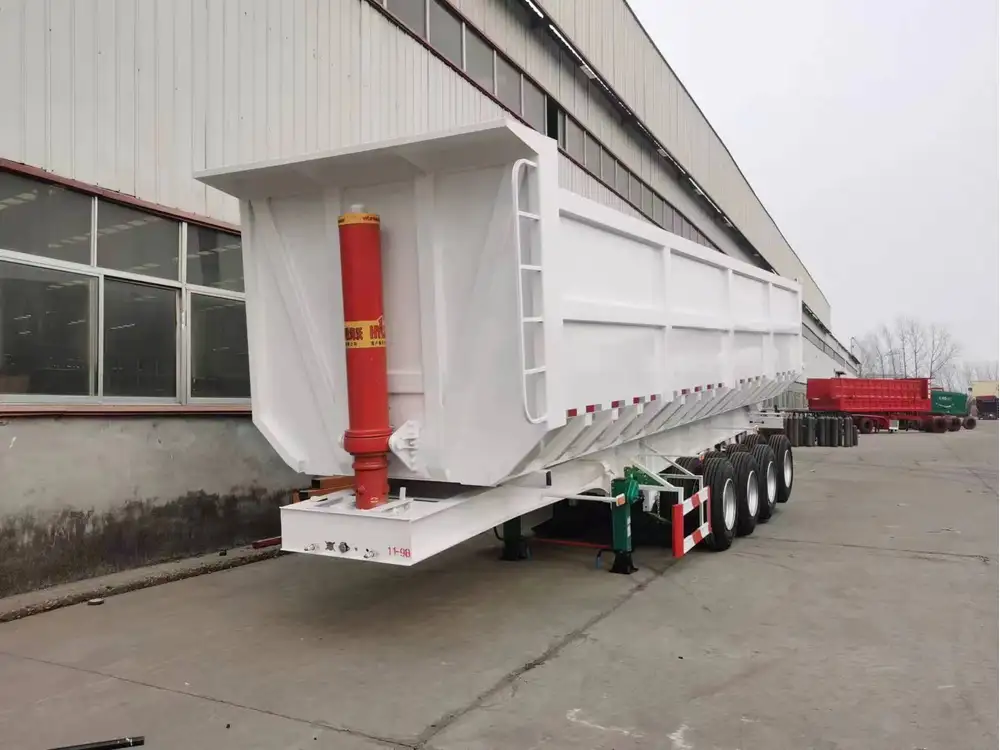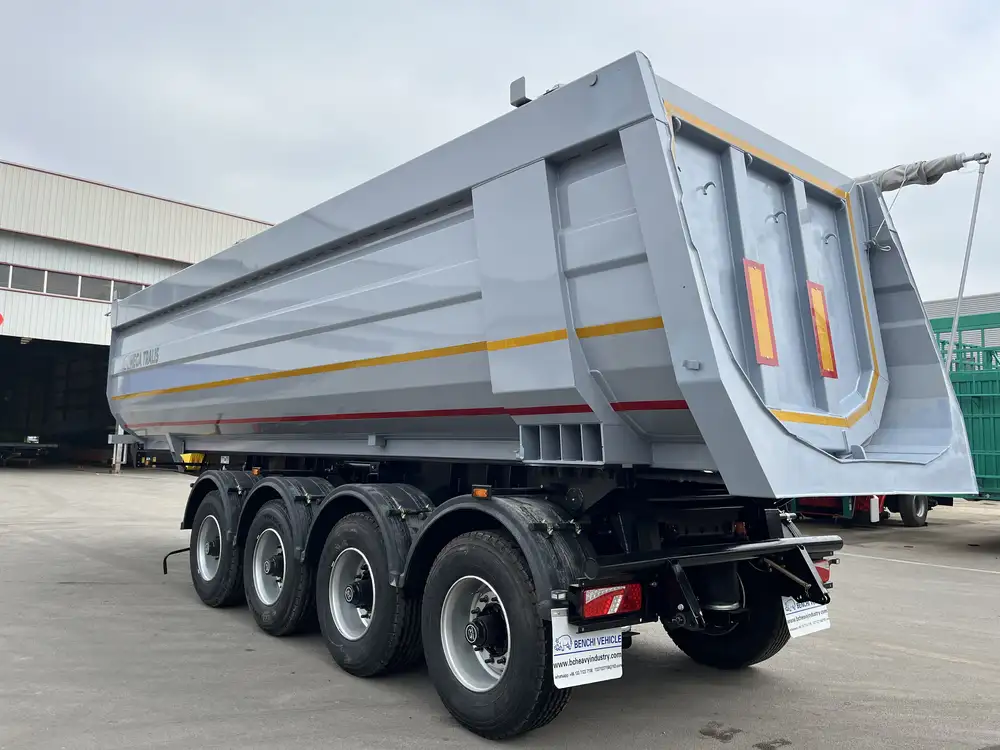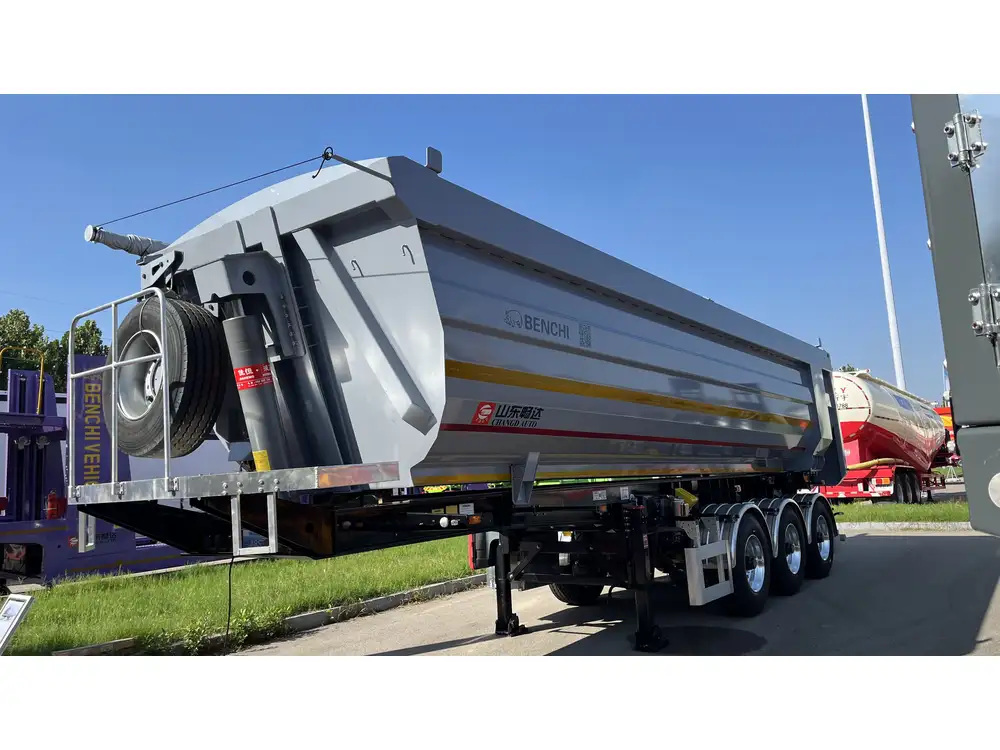When it comes to industrial applications, water trucks play a crucial role in various sectors including construction, mining, and agriculture. As a manufacturer of semi-trailers, we recognize the importance of understanding the capacities of these vehicles. This article delves into the various aspects of water truck capacities, specifically focusing on how many gallons a water truck can hold, and the factors influencing these capacities.
What is a Water Truck?
Water trucks, also known as water tankers, are specialized vehicles designed to transport large quantities of water. They are primarily used for dust suppression on construction sites, agriculture, road maintenance, and firefighting. The design of a water truck includes a tank mounted on a chassis, often equipped with a pump for effectively distributing water.
Key Components of a Water Truck
- Tank: The primary storage container for water, available in various sizes from smaller models to large-capacity trucks.
- Chassis: The framework that supports the water tank and allows for mobility.
- Pumping System: Designed for loading and unloading water quickly and efficiently.
- Dispersion System: Often includes hoses and spray nozzles to control the flow of water.

How Many Gallons Do Water Trucks Hold?
The capacity of a water truck can vary widely depending on its size and intended use. Here’s a comparative analysis of common water truck sizes:
| Water Truck Type | Typical Capacity (Gallons) |
|---|---|
| Small Water Truck | 500 – 1,000 gallons |
| Medium Water Truck | 1,500 – 3,000 gallons |
| Large Water Truck | 4,000 – 6,000 gallons |
| Extra Large Water Truck | 7,000 – 10,000+ gallons |
Small Water Trucks
Used primarily in urban settings or smaller construction sites, small water trucks typically hold between 500 to 1,000 gallons. They are highly maneuverable and ideal for tight spaces.
Medium Water Trucks
Medium-sized trucks, holding 1,500 to 3,000 gallons, are commonly seen on larger construction sites. Their capacity allows them to perform multiple functions, including dust suppression and site cleanup.

Large Water Trucks
Catering to more extensive operations, large water trucks can hold between 4,000 to 6,000 gallons. They are often employed in mining and agricultural projects where substantial water supply is needed over larger areas.
Extra Large Water Trucks
For the most demanding applications, extra-large water trucks can hold 7,000 to 10,000+ gallons. These trucks are essential in major infrastructure projects and for firefighting operations, where rapid and extensive water supply is critical.
Factors Affecting Water Truck Capacities
Design Specifications: The specific design and intended use of a water truck dictate its size and capacity. Custom designs may offer unique capabilities tailored to specific industries.
Purpose of Use: Different operations require varying water volumes; thus, the choice of water truck size heavily revolves around specific job needs.
Regulatory Compliance: Certain regions have regulations governing the maximum capacity of water transport vehicles to ensure safety and environmental responsibility.
Chassis Size: The type and size of the truck chassis dramatically influence the potential tank volume. A larger chassis can support a more extensive tank without compromising structural integrity.

Application of Water Trucks in Various Industries
Water trucks serve varied applications across multiple sectors. Understanding these applications can provide insight into what capacity might be necessary for specific uses.
Construction Industry
In construction, water trucks are instrumental in dust control during earthmoving and excavation processes. Depending on the size of the site, a capacity of 1,500 to 3,000 gallons is typically sufficient.
Mining Sector
Mining operations require substantial water volumes for dust suppression, equipment washing, and even as a fire prevention measure. Large to extra-large water trucks with capacities ranging from 4,000 to 10,000 gallons are most beneficial in this sector.

Agriculture
In agricultural operations, water trucks are used for irrigation and crop watering. Depending on the scope of the operation, farmers might opt for medium to large trucks with 2,000 to 6,000 gallons capacities.
Firefighting
Water trucks play a pivotal role in firefighting efforts, particularly in wilderness areas where hydrants are scarce. Their larger capacities are often critical; therefore, trucks with 7,000 to 10,000+ gallons are commonly employed.
Key Features to Consider When Choosing a Water Truck
When selecting a water truck, various features must be considered beyond just capacity:

Tank Material
Water tanks can be made of several materials including:
- Polyethylene: Lightweight and resistant to corrosion.
- Stainless Steel: Durable and suitable for containing various liquids, including potable water.
- Aluminum: Lightweight with good resistance, although often more expensive.
Dispersion Systems
The efficiency of a water truck often relies on its dispersion systems. Systems should include adaptable nozzles that allow for adjustable flow rates and patterns:
- Spray Nozzles: Ideal for dust suppression across large areas.
- Hoses: Useful for direct watering of crops or specific sites.
Fuel Efficiency
Given the high operational costs associated with water trucks, fuel efficiency becomes an essential consideration. Look for trucks that offer robust engine performance without excessive fuel consumption.

Benefits of Utilizing Water Trucks
Increased Efficiency
Water trucks enhance the efficiency of operations, particularly in construction and agriculture. They allow for continuous water supply without frequent refilling, enabling teams to focus on their tasks without interruptions.
Environmental Management
Using water trucks for dust suppression can minimize environmental impacts. Maintaining moisture levels in the air and soil helps prevent erosion, promotes soil health, and protects surrounding ecosystems.

Versatility
Water trucks are incredibly versatile, which allows them to be utilized across various sectors. Adaptable tanks with multipurpose distribution systems render them suitable for any site conditions.
Conclusion
Understanding the capacities of water trucks is essential for industries that rely on them for various operations. Depending on their size and function, water trucks can hold from 500 to over 10,000 gallons. By assessing the unique requirements of your operation—be it construction, mining, agriculture, or firefighting—you can select the appropriate water truck that meets your demands and maximizes efficiency. With vast capacities ranging from small to extra large, these vehicles stand as pivotal resources in managing water supply across critical sectors.
Investing in the right water truck designed with thoughtful features and appropriate capacity not only enhances operational efficiency but also plays a part in ensuring compliance with safety and environmental standards. As we strive to meet your water needs and showcase our commitment to quality, let us help you find the perfect water truck that aligns with your objectives.



